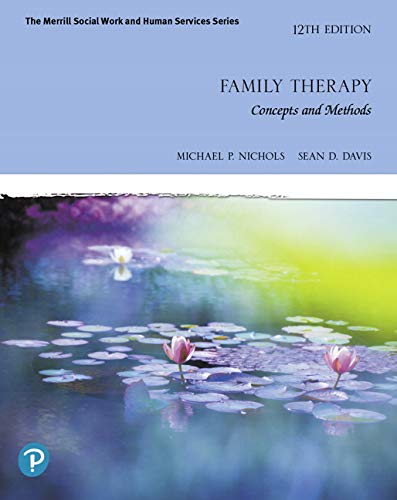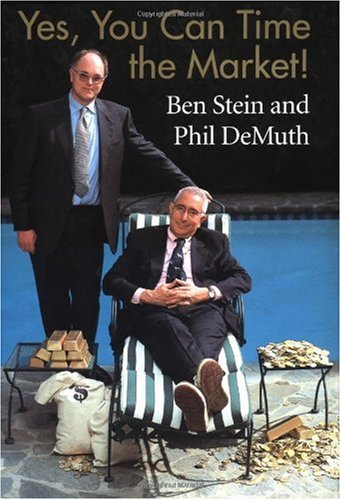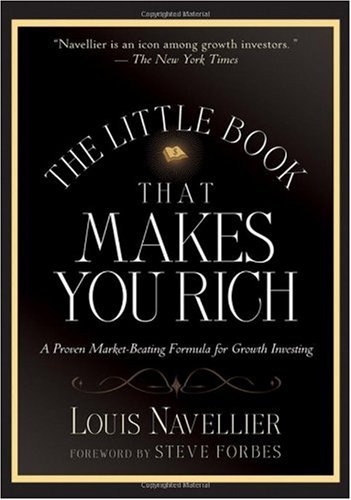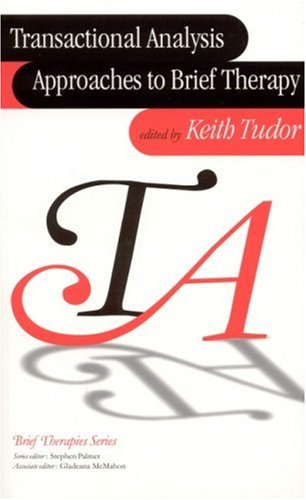موضوعات
آموزش و پرورش
ادبیات و زبان
پزشکی، دندانپزشکی و داروسازی
تاریخ و جغرافیا
داستان و رمان
دیگر
دین و فلسفه
روانشناسی
ریاضیات و آمار
سلامتی، تناسب اندام و رژیم غذایی
شیمی و پلیمر
علوم اجتماعی و حقوق
علوم زیستی و بیوتکنولوژی
فیزیک و نجوم
کامپیوتر و اینترنت
کتابهای کودکان و داستان
کسب و کار و اقتصاد
کشاورزی و دامپزشکی و غذا
معماری
مهندسی و فناوری
هنر و تئاتر
محصولات
(2023)Family Therapy: Concepts and Methods - Original PDF
نویسندگان: خلاصه: An authoritative, readable, informative guide to the field of family therapy Long considered the standard of excellence - the best introduction and guide to the practice of family therapy available - Family Therapy explores the rich history and contemporary practice of the entire field. Thorough, thoughtful, fair, and balanced, this accessible resource presents ideas and techniques that give readers a clear focus on clinical practice. While exploring the history, the classic schools, and the latest developments in the field, the 12th Edition puts an increased, pragmatic focus on clinical practice, including the author's observations of actual sessions with leading practitioners, as well as the best case studies of several invited master therapists. Included are new case studies, a new chapter on research in family therapy, an expanded and updated section on technology, and many more content changes that bring the reader up to date on the latest and most critical issues in the field today. This title is also available digitally via MyLab Helping Professions, which includes the Pearson eText. By combining trusted authors' content with digital tools and a flexible platform, MyLab personalizes the learning experience and improves results for each student.It Ends With You: Grow Up and Out of Dysfunction - PDF
نویسندگان: خلاصه: Family dysfunction often runs through succeeding generations like a snowball rolling down a hill, gathering speed and power as it goes. In 25 years of counseling people in recovery, licensed psychotherapist Tina Tessina has worked with many clients struggling with problems stemming from dysfunctional families-anxiety, depression, feeling out of control, relationship disasters, and a pervasive feeling that they don't know what "normal" is. No matter how old they are, they don't feel like they've really grown up. They never learned the confidence, self-motivation, and emotional management tools they need to live healthy, happy lives, because their families didn't provide good role models, structure, and information. The exercises and guidelines in this book will help you finally understand what a functional family is, how its members are still affected by early experience, and how to develop the skills necessary for successful living and loving. It will help you make sure that the effects of family dysfunction will end with you.Somewhere I'll Find You (Capital Theatre, Book 01) - PDF
نویسندگان: خلاصه: A classic tale of sensuous secrets and unanticipated passion, from the extraordinary New York Times bestselling author The toast of the town ... All London is at Julia Wentworth's feet—and anything she desires is hers for the asking. But the glamorous leading lady guards a shocking secret: a mystery husband whom she does not know, dares not mention ... and cannot love. For years Damon Savage has been searching for the stranger his parents wed him to without his consent, hoping to legally free himself from matrimony's invisible chains. And he is astonished to discover his "bride" is none other than the exquisite lady he'd hoped to make his mistress! But though his wife by law, Julia will never truly be Damon's—until he conquers her fears, his formidable rivals ... and her proud, passionate, and independent heart.Get the Life You Want: Foreword by Paul McKenna. The Secrets to Quick & Lasting Life Change - PDF
نویسندگان: خلاصه: When people and therapists alike have a problem they can't fix, they call Richard Bandler because he delivers--often with miraculous results. Hailed as one of the greatest geniuses in the field of personal change, and the father of Neuro-Linguistic Programming, Richard Bandler has helped tens of thousands of people around the globe rid themselves of 'incurable' phobias, fears, anxieties, addictions, negative habits, and past traumas often in a single session. Get the Life You Want is Richard Bandler at his best, sharing his remarkable insights, his controversial signature wit, and more than thirty-five time-tested NLP techniques that will bring about quick and lasting change in every area of your life, from breaking free of toxic or non-productive relationships, to delivering business presentations without a knot in your stomach, to quitting smoking for good. By putting Bandler's techniques into practice, you can literally change your brain chemistry without expensive drugs or endless therapy sessions; most of all, you can finally learn how to run your own brain instead of rehashing the same problems. You'll discover: How to Hone the Habit of Being Happy Why Thinking Positively Won't Change Your Life. . . And Why Thinking Precisely Will The Fast Phobia Cure That Will Banish Any Fear Including Fear of Flying, Public Speaking, and Heights How to Fall Out of Love with Someone (for Real!) If you're plagued with the past, stuck in a fear, or just unable to get your mental motor running on time, Get the Life You Want will offer a mental toolbox of ways to get your life in order. If you have spent too much time in therapy or too much money trying to do it yourself, this book is for you. The key to quick and lasting change is not only right at your fingertips, it's in your head literally. Get the Life You Want will help you unleash it.Life Without Ed: How One Woman Declared Independence from Her Eating Disorder and How You Can Too - PDF
نویسندگان: خلاصه: A unique new approach to treating eating disorders Eight million women in the United States suffer from anorexia nervosa and/or bulimia. For these women, the road to recovery is a rocky one. Many succumb to their eating disorders. Life Without Ed offers hope to all those who suffer from these often deadly disorders. For years, author Jennifer Schaefer lived with both anorexia and bulimia. She credits her successful recovery to the technique she learned from her psychologist, Thom Rutledge. This groundbreaking book illustrates Rutledge's technique. As in the author's case, readers are encouraged to think of an eating disorder as if it were a distinct being with a personality of its own. Further, they are encouraged to treat the disorder as a relationship rather than as a condition. Schaefer named her eating disorder Ed; her recovery involved "breaking up" with Ed Shares the points of view of both patient and therapist in this approach to treatment Helps people see the disease as a relationship from which they can distance themselves Techniques to defeat negative thoughts that plague eating disorder patients Prescriptive, supportive, and inspirational, Life Without Ed shows readers how they too can overcome their eating disorders.Fear Is No Longer My Reality: How I Overcame Panic and Social Anxiety Disorder and You Can Too - PDF
نویسندگان: خلاصه: This is Jamie Blyth's powerful story behind the reality star's TV image--and a message of hope and healing for the 20 million Americans who suffer from social anxiety disorder. As one of the finalists on ABC-TV's reality dating show "The Bachelorette," Jamie Blyth risked his heart before millions, while going public with his personal struggle against social anxiety and panic disorder in hopes of helping those who continue to suffer in silence. Fear Is No Longer My Reality includes: Expert advice on understanding and handling anxiety disorders from leading authorities Information on the latest research-based behavior therapies Reviews of the new FDA-approved medications A step-by-step plan for managing anxiety Blyth's amazing transition from a life of fear to a life in the spotlight is explored through stories from his TV life, along with interviews from fellow "Bachelorette" stars Ryan Sutter, Trista Rehn, Charlie Maher, and Bob Guiney.Fire Your Therapist: Why Therapy Might Not Be Working for You and What You Can Do about It - PDF
نویسندگان: خلاصه: Build the life you want with the powerful alternative to therapy"This is a terrific book about you achieving peak performance, better balance, and success. Think of it as your own personal guide to getting from good to great in your life. Dr. Siegler actually does what many before have set out to accomplish-bright, ambitious people of all ages now have a proven path to transformation."—Stewart Emery, coauthor of the international bestsellers Success Built to Last and Do You Matter?"Dr. Siegler possesses the qualities of the best catalysts for profound change: clarity, compassion, and the courage to see each client with brand new eyes. This book is the essential guide for finding your way through the confusing thicket of self-mastery options." —Raphael Cushnir, author of The One Thing Holding You Back and Surfing Your Inner Sea"Finally, a new paradigm-that is refreshing, daring, cutting edge, and client-centric-that can yield the life and career you want. With Fire Your Therapist, Dr. Siegler ushers in a new era of self-improvement." —Josh Baran, author of The Tao of Now"Dr. Siegler shares the client-centered, goal-directed philosophy of Solution Focused Therapy and broadens it. For those who want to make an educated choice about how to achieve the life they want, he anticipates and answers your questions in a comprehensive and affirming manner."—Eve Lipchik, codeveloper of Solution Focused Therapy and author of Beyond Technique in Solution Focused TherapyFeel like therapy isn't working for you? Wish there were a better way to achieve your goals? Fire Your Therapist introduces a new, holistic approach to creating the life you want. Based on Dr. Siegler's groundbreaking Spheres of Life Coaching Method, this book explains how to move beyond the "talking cure" of traditional therapy to a more creative, results-oriented way of achieving your goals. You'll be inspired by the experiences of clients who have benefited from Dr. Siegler's proven methods.Fire Your Therapist is the essential step-by-step guide for anyone who wants to create a more successful life.Yes, You Can Time the Market! - PDF
نویسندگان: خلاصه: Economist, actor, author, and former quiz show host Ben Stein teamed up with investment psychologist Phil DeMuth to examine a century of stock market data and discovered a profound and original investment truth: Yes, you can time the market! In their instant investment classic Yes, You Can Time the Market!, Stein and DeMuth show investors simple, readily available measurements that tell them when it's time to invest in stocks, bonds, real estate, or cash. Written for the investor who wants to preserve capital and build wealth steadily, this book offers prudent, bedrock advice for anyone who can no longer afford to play games with their money.The Little Book That Makes You Rich: A Proven Market-Beating Formula for Growth Investing (Little Books. Big Profits) - PDF
نویسندگان: خلاصه: Profit from a powerful, proven investment strategyThe Little Book That Makes You Rich is the latest book in the popular "Little Book, Big Profits" series. Written by Louis Navellier -- one of the most well-respected and successful growth investors of our day -- this book offers a fundamental understanding of how to get rich using the best in growth investing strategies. Navellier has made a living by picking top, actively traded stocks and capturing unparalleled profits from them in the process. Now, with The Little Book That Makes You Rich, he shows you how to find stocks that are poised for rapid price increases, regardless of overall stock market direction. Navellier also offers the statistical and quantitative measures needed to measure risk and reward along the path to profitable growth stock investing. Filled with in-depth insights and practical advice, The Little Book That Makes You Rich gives individual investors specific tools for selecting stocks based on the factors that years of research have proven to lead to growth stock profits. These factors include analysts' moves, profit margins expansion, and rapid sales growth. In addition to offering you tips for not paying too much for growth, the author also addresses essential issues that every growth investor must be aware of, including which signs will tell you when it's time to get rid of a stock and how to monitor a portfolio in order to maintain its overall quality. Accessible and engaging, The Little Book That Makes You Rich outlines an effective approach to building true wealth in today's markets.Louis Navellier (Reno, NV) has one of the most exceptional long-term track records of any financial newsletter editor in America. As a financial analyst and editor of investment newsletters since 1980, Navellier's recommendations (published in Emerging Growth) have gained over 4,806 percent in the last 22 years, as confirmed by a leading independent newsletter rating service, The Hulbert Financial Digest. Emerging Growth is one of Navellier's four services, which also includes his Blue Chip Growth service for large-cap stock investors, his Quantum Growth service for active traders seeking shorter-term gains, and his Global Growth service for active traders focused on high growth global stocks.Transactional Analysis Approaches to Brief Therapy: What do you say between saying hello and goodbye? (Brief Therapies series) - PDF
نویسندگان: خلاصه: Of all the approaches to therapy, Transactional Analysis (or TA) is arguably one of those most suited to time-limited work. At a time when short-term therapy is increasingly dominant as a form of practice, Transactional Analysis Approaches to Brief Therapy provides an insightful guide which both informs and challenges. Rather than a single theory, TA has developed as a group of four schools which share a common philosophy, but place different emphasis on what occurs during the therapeutic process. Written by therapists at the leading edge of developments in TA, the book presents and differentiates each of these four approaches. Through transcripts and commentaries, it shows how theory applies to practice, for examplآیا کتاب مورد نظر هنوز بر روی سایت قرار نگرفته است؟ جای نگرانی نیست! کافی است بر روی گزینه سفارش کتاب کلیک کرده و درخواست خود را ثبت کنید. در کمتر از چند ساعت کتاب شما را آماده خواهیم کرد.









